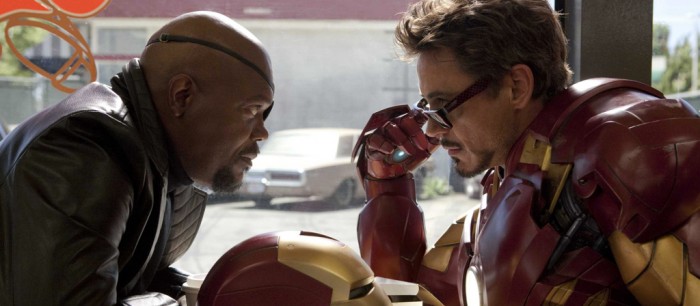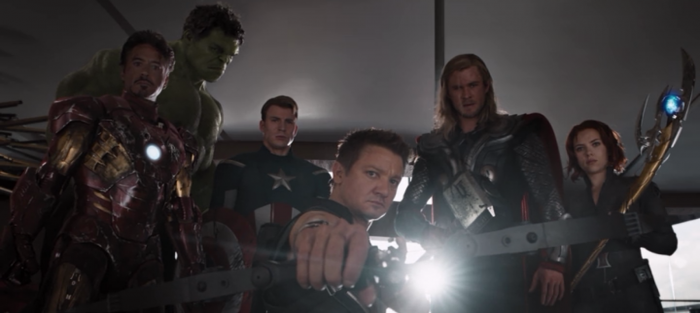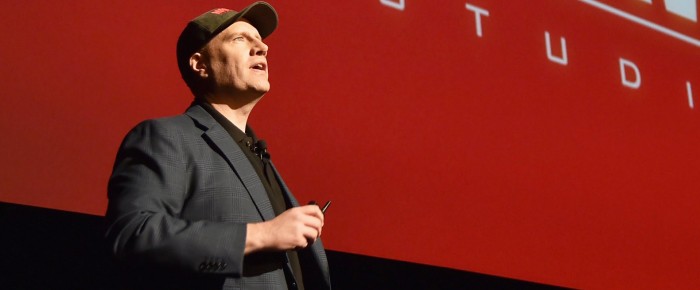Why Marvel Can't Fail: How Marvel Studios Engineered Your Loyalty
Guardians of the Galaxy 2 has five mid-credit scenes. If that seems like overkill, you aren't thinking like Marvel or like most Marvel fans. The post-credits tease has been a clear marketing strategy – disguised perfectly as extra entertainment – ever since Samuel L. Jackson promised to bring Tony Stark (and us) into the Avenger Initiative. It, like a brownie bite version of the delicious omnibus cake, offers millions of fans the ability to check out what's on the dessert menu directly after gorging on the buffet.
It's also the perfect symbol for the larger reason why the studio continues to win big: Marvel is sticky.
It's All About Being Sticky
"Stickiness" is one of those buzzy business terms that we encounter constantly without thinking about it. With its infuriating need to type in your login on every piece of tech you buy, Apple is probably the king of stickiness, but the easiest way to understand it is to think about your bank. They want you to have a savings account and a checking account, but they also want you to use a debit card, and get a credit card through them. Just like that, you're stuck. Add on a student or home loan, and consider the insane difficulty level of closing an account, and you're in too deep with them to end it all when they tack on a monthly maintenance fee or keep you on hold for three hours.
Stickiness is all about making it so painful to leave that you'll deal with the mild-to-moderate inconveniences of staying.
Marvel utilizes that concept in at least two big ways. The first is its characters. The success of Iron Man didn't guarantee the launch of a billion-dollar franchise; although Thor did well, The Incredible Hulk and Captain America weren't nearly as strong globally. The risky Marvel comeback could have ended there.
But these movies were, collectively, healthy enough to launch a $1.5 billion grossing team-up movie that shocked the industry because it worked exactly how it was supposed to: by multiplying the fandom for each individual hero and promising something larger than each component part.
The Marvel Motion Machine
After that, Marvel has been a perpetual motion machine of winning, thanks in large part to stickiness. Fans of Iron Man and Thor were offered another chance to fall in love with Hulk and Captain America, as well as the opportunity to see all of them in a new light as a team. Each movie since has offered a similar re-introduction to show us how well these characters interact with each other.
The stickiness effect could be seen immediately. Iron Man grossed $585m worldwide. Iron Man 2 grossed $624m worldwide.
Post-Avengers Iron Man 3? It grossed $1.2 billion.
Captain America: The Winter Soldier doubled the gross of the first movie, and Civil War (admittedly another omnibus movie with several dozen superheroes) crossed a billion, too. Thor also saw a bump, and Marvel was able to launch Guardians, Doctor Strange, and Ant-Man to varying degrees of success while tying each back to the main story hub with Thanos, a post-credits scene with Thor, and a fight with Falcon at Avengers HQ, respectively. Whenever one solo movie was weak, Marvel had a built-in way of boosting that character's profile.
The second way Marvel utilizes stickiness is with its genres and plot information. Throughout its 15-movie run, the MCU has injected a ton of different genres into the mix, including spy thriller, space opera, and whatever Shane Black's Introspective Smart Ass genre is technically called. These additions offered something new each time without overriding the general Marvelness of each entry. In other words, remaking a 1970s Robert Redford political drama doesn't stop Marvel from filming 20 fight scenes. Furthermore, you can hire James Gunn or Taika Waititi and let them do their thing (with Kevin Feige looking out for the necessary Marvelness).
As for their plots, each movie overlaps with the others in a way that makes investing in only one hero impossible. Guardians of the Galaxy is the least connected, but it was still sold as a chance to further the Thanos plot and learn more about the Infinity Stones. Now that it's proven itself as its own success story, Marvel has used the five mid-credits scenes in Vol. 2 to introduce even more potential franchises into the mix, but, just for insurance, the Guardians are going to be in Infinity War anyway. So will Doctor Strange, after he shows up (as teased) for Thor: Ragnarok.
Consider for a second how easy or difficult it would be to skip that one. That urge you may feel to see the next Thor adventure even though he's only your third favorite Avenger is stickiness. That urge you may feel to see it because Hulk and Doctor Strange and Loki will be there, too? Same thing.
Stickiness is also why Ant-Man got his big cameo in Civil War. It's why the TV and movie universes will eventually cross over. It's why Tony Stark's A-blazened skyscraper takes up 2/3rds of the Spider-Man: Homecoming poster. Now that millions are invested in what Marvel does, the threshold for how good any single movie has to be has been lowered, leaving them free to address the other bedrock problem for big franchises: showing us something new every time.
Marvel Can't Lose
Last but not least, Bloomberg suggests that a major component to creating stickiness is "building user communities." Like, say, by having an annual event where you put all your beloved products in front of your biggest fans and then show them a glimpse into the future. Once again, Marvel has built its empire by the book.
Obviously, all of this is a trillion times easier said than done. If stickiness were simple, you'd never change cell phone providers. Feige's status as a hands-on producer and Marvel's Classic Hollywood-aping production conveyor belt matter a great deal, but stickiness is the ultimate goal. The best way to make sure your fans keep coming back is to make sure they can't leave.
Now that Marvel has earned that kind of loyalty, they can't lose.



